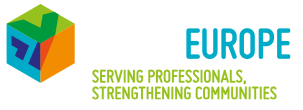 Chodesh Sivan Tov!
Chodesh Sivan Tov!
On the 6th of Sivan (this year beginning on the evening of 28th May) we will celebrate the pilgrimage festival of Shavuot, which as well as its agricultural theme (a harvest festival), commemorates the receiving of the Torah on Mount Sinai exactly seven weeks after the Exodus from Egypt.
The Jews, often known as the “People of the Book” have always had an intimate relationship with this book, and valued Torah study as a meta-value. The ancient Greeks, puzzled by the phenomenon of an entire people dedicated to learning, called Jews “a nation of philosophers” (high praise indeed from the Greeks!). At the inception of Jewish history, as the Israelites gained their freedom from the tyrannical oppression of Egyptian civilization, the first instruction they received was to pass this national narrative onto the next generation. Rather than reflect on the value of freedom, or look forward toward the Promised Land, God focused instead on the core Jewish value of education. In effect, God instructed Moses to command the people to become a Nation of Educators.
While universal compulsory education did not exist in the west until the late nineteenth century, it was well-established in Jewish society some eighteen centuries earlier. In the Talmud, the mitzvah of studying Torah (Talmud Torah) is seen as more important than all other mitzvot. It has often been claimed that the secret of the continuity of Jewish national identity through hundreds of generations of challenging diaspora history can be attributed to the almost obsessive Jewish approach to Torah study and education.
On the night of Shavuot, it has become the custom for many to spend the entire night learning Torah in preparation to re-accept it the next morning, as a re-enactment of the original giving of the Torah, when the Jews initially accepted it from God at Mount Sinai. This custom is called Tikkun Leil Shavuot. The original historical event is often thought of as the chupa (wedding ceremony, or literally wedding canopy) of God and the Jewish people. In these terms, we can understand the Tikkun Leil Shavuot as an annual renewal of our wedding vows and the rekindling of our love affair with the book that gave the Jews the name the “People of the Book”.
Resources
This year, many communities who may have planned to hold all-night Torah study sessions will not be able to. While not quite the same experience as learning with the community together in person, Tikkun Leil may still take place virtually, in small family groups, in chavruta (study-partnership), or alone at home. We hope the following resources will be useful for you and your community to participate in Tikkun Leil study sessions this year.
- Myjewishleanring.org gives some background to the festival of Shavuot and the custom of Tikkun Leil Shavuot
- The National Library of Israel have collated resources for four separate study sessions that can be used for your own Tikkun Leil study.
- Ten Paths Curriculum, based on the thoughts of Rabbi Jonathan Sacks, focuses on the topical Mitzvah of Studying Torah, and is structured in a way that lends itself well to use for a Tikkun Leil chavruta or small-group study session.
- Limmud has created study resources on various festivals, including Shavuot, which can be found in English, French, Spanish, Russian, and Hebrew.
